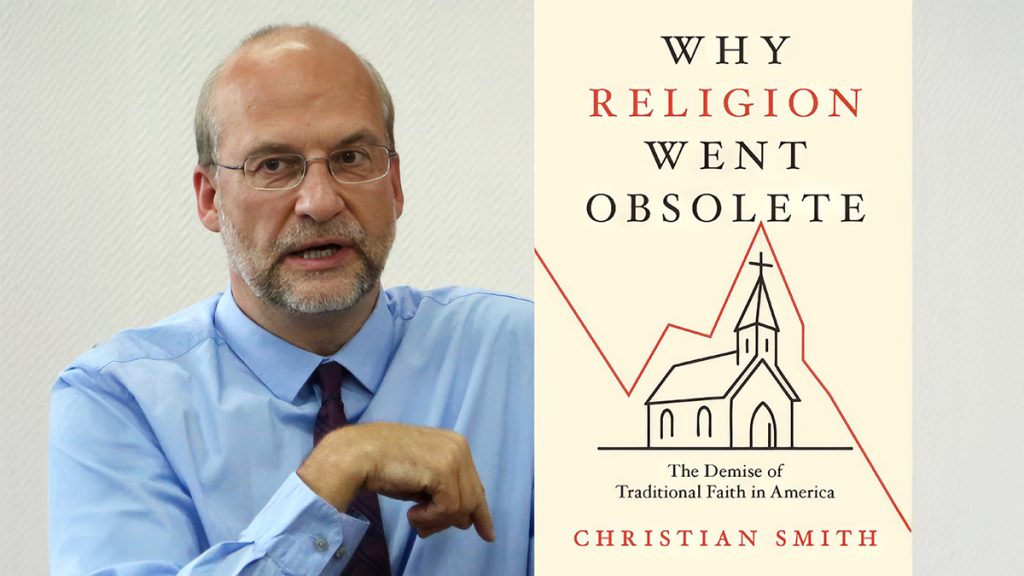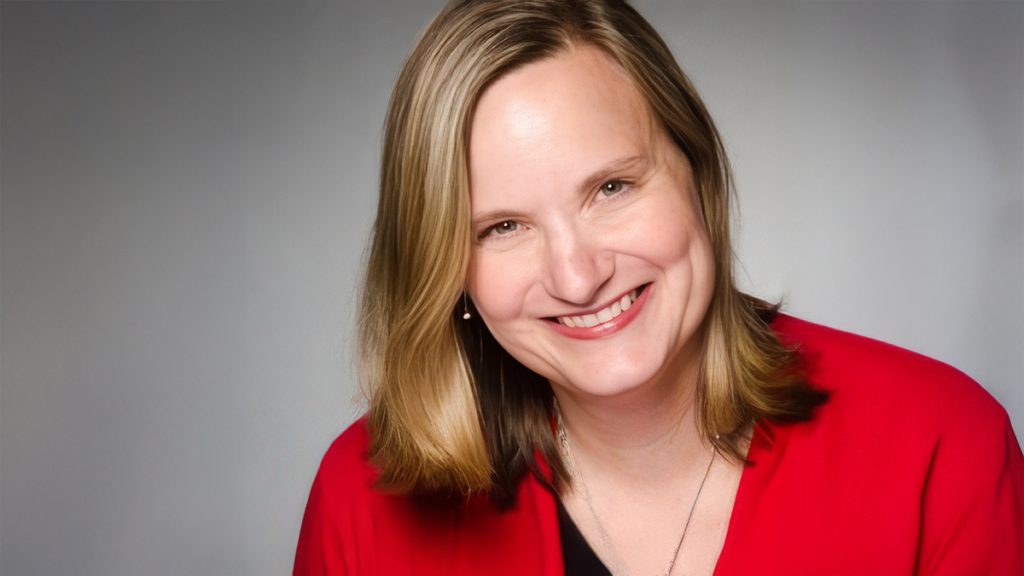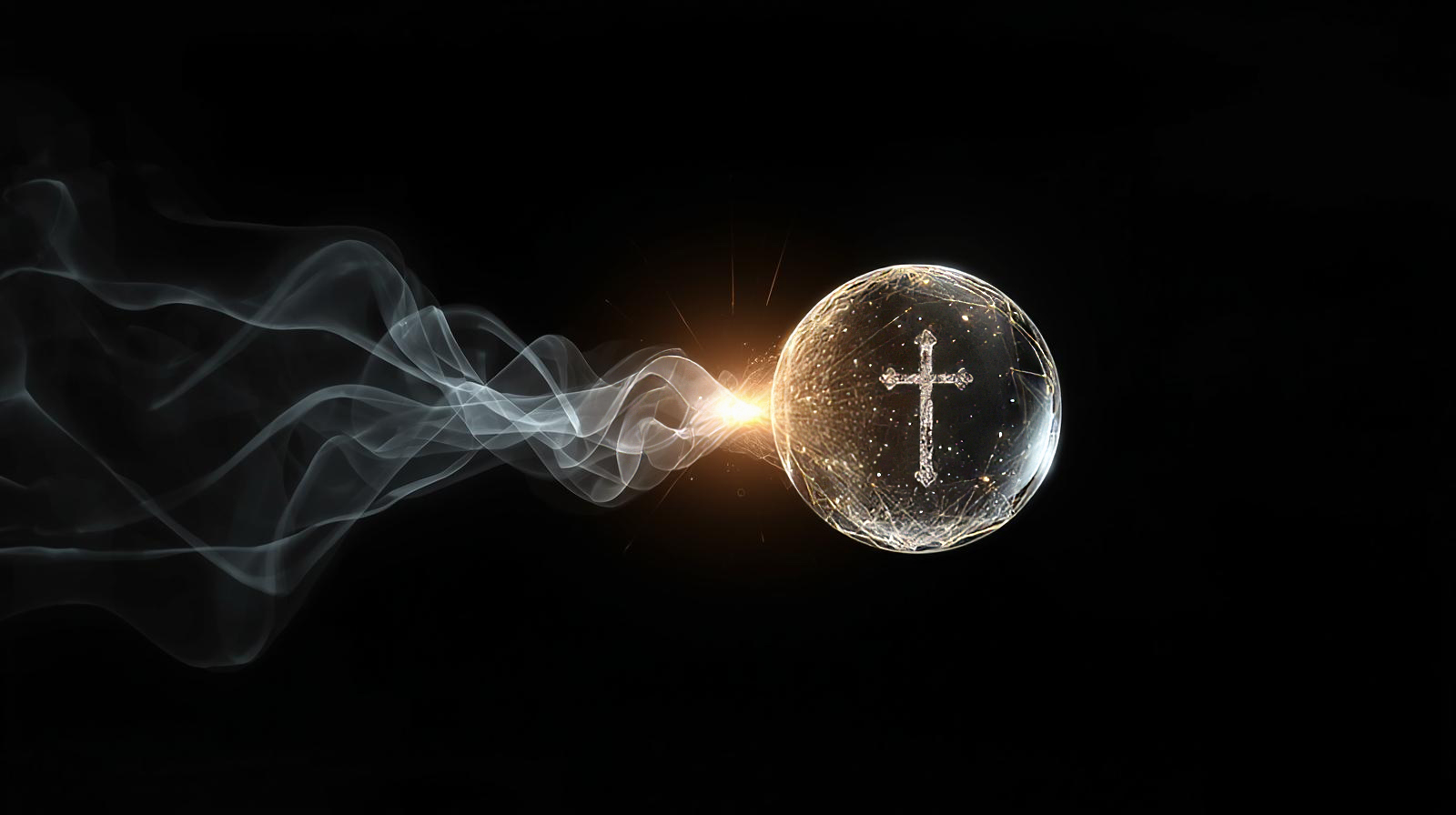Traditional religion may be destined for the walls of the Cracker Barrel, a space filled with nostalgic advertisements for products of yesteryear, like Victrolas, lace antimacassars or butter churns. All things, in other words, that have been rendered obsolete by modern life.
A sociologist’s warning
According to social scientist and author Christian Smith, a professor of sociology at the University of Notre Dame, “obsolete” describes the situation facing traditional organized religion in the United States. The title of his new book even puts its cultural expiration in the past tense: Why Religion Went Obsolete: The Demise of Traditional Faith in America.
The book, based on research that includes more than 200 qualitative interviews, will be released by Oxford University Press on Tuesday (April 8).

Decline vs. obsolescence
“We almost always use the word ‘decline’ when we talk about if things aren’t going well for religion,” Smith said in a Zoom interview with RNS.
“Decline is a good word. But what it’s descriptive of is organizational matters and individual religiousness. Organizations can have decline in membership or adherence, attendance, financial giving. That’s decline — it’s measurable.”
His book, however, chronicles something bigger and harder to pin down. It’s about all the cultural changes that precipitated those declines and made organized religion less relevant in people’s lives.
Cultural shifts
“The culture was formed by these big institutional, technological, economic, geopolitical, military, etc., changes,” he said. Those include the rise of individualism, the association of religion with violence after 9/11, the third sexual revolution and more.
Smith is quick to point out that culturally obsolete things can still be useful for some people. He has DVDs and CDs at home he’s not planning to get rid of. But most younger people rely entirely on streaming services for movies and music, making DVDs and CDs obsolete for them.
The internet and other forces
There’s a lesson there. No, religion hasn’t been supplanted by a new technology — though Smith’s book does detail 10 ways the internet “corroded” religion, including reducing attention spans and diminishing willingness to engage in in-person communities with significant time demands.
Nor was there a plot to derail religion. The social changes that made it obsolete were “long-term, highly complex and unintended,” Smith said. Delayed marriage, reduced childbirth and voluntary childlessness chipped away at religion’s cultural power.
Geopolitical and economic changes
There have also been geopolitical changes, such as the end of the Cold War and the neoliberal economic policies that made people more devoted to careers.
The Cold War’s end, Smith writes, “was a jolt that helped to trigger the cultural avalanche that plowed over religion in the next two decades.”
Americans raised to believe they were better than “godless communists” lost the certainty that being American meant being Christian.
Religious scandals
Another factor was the rise of scandals, particularly the Catholic Church’s priest sex abuse crisis and the evangelical world’s scandals with pastors accused of embezzlement or covering up assault. Even though only a minority were involved, these “polluted” the name of religion in the eyes of millions.
Smith called this convergence of factors “a perfect storm.” The zeitgeist is, if not hostile to religion, not receptive to it.
Generational change
“It’s very generational,” he said. “This is especially post-boomers, especially millennials. Within the culture for that generation, religion was just kind of discredited or polluted, or it didn’t add up.”
A scholar, not a critic
Some may see the book as critical of religion. That’s not the case, Smith said. His two dozen previous books have tracked religion in America for years, including the National Study of Youth and Religion and Passing the Plate.
Smith is himself a Christian. He grew up Presbyterian and converted to Catholicism about 15 years ago.
“I don’t have an anti-religious agenda in my scholarship at all,” he said. “I’m a sociologist, so I’m here to describe the world as best I can — what’s happening and why — without cheering it on or without condemning it.”
Relief for pastors
While religious people are sometimes defensive about his message, others receive it with relief. Smith has met pastors who thought their declining churches were their fault.
“I said, ‘It’s not you. There’s something bigger going on here,’” he said. The pastors found it liberating to realize decline wasn’t because of their actions or failures.
“If people don’t have an understanding of those social contexts, it’s very easy for them to personalize it and oftentimes blame themselves,” Smith said.
Beyond religion vs. secular
Smith won’t predict where religion is headed, except to say secularism hasn’t triumphed.
“It’s not a binary between religion and the secular,” he said. “It’s not a zero sum game, but more nuanced.” Most Americans, including younger ones, still believe in God.
Religion, he said, is morphing into other channels. Interest in the supernatural remains high, with people exploring neopaganism, healing crystals and other forms of “re-enchantment.”
“As people left religion, or grew up in a world in which religion was obsolete, they became attracted to this re-enchanted culture. And there’s lots of different entry doors into it,” he said.

- Jana Riess is a Senior columnist at RNS. She has a PhD in American religious history from Columbia University.
- First published in RNS. Republished with permission.

